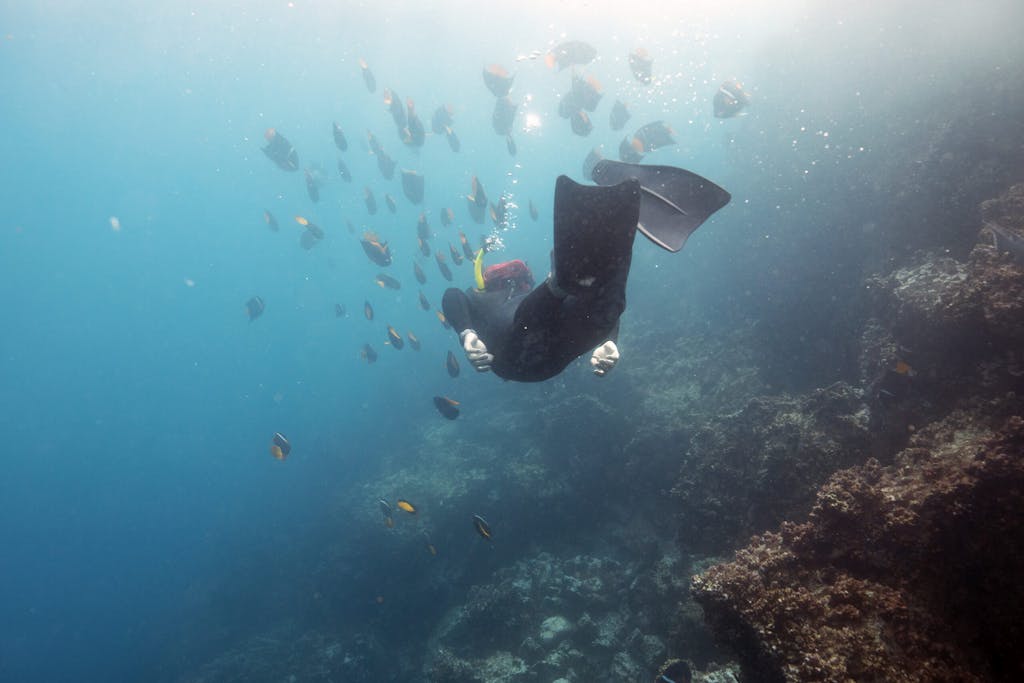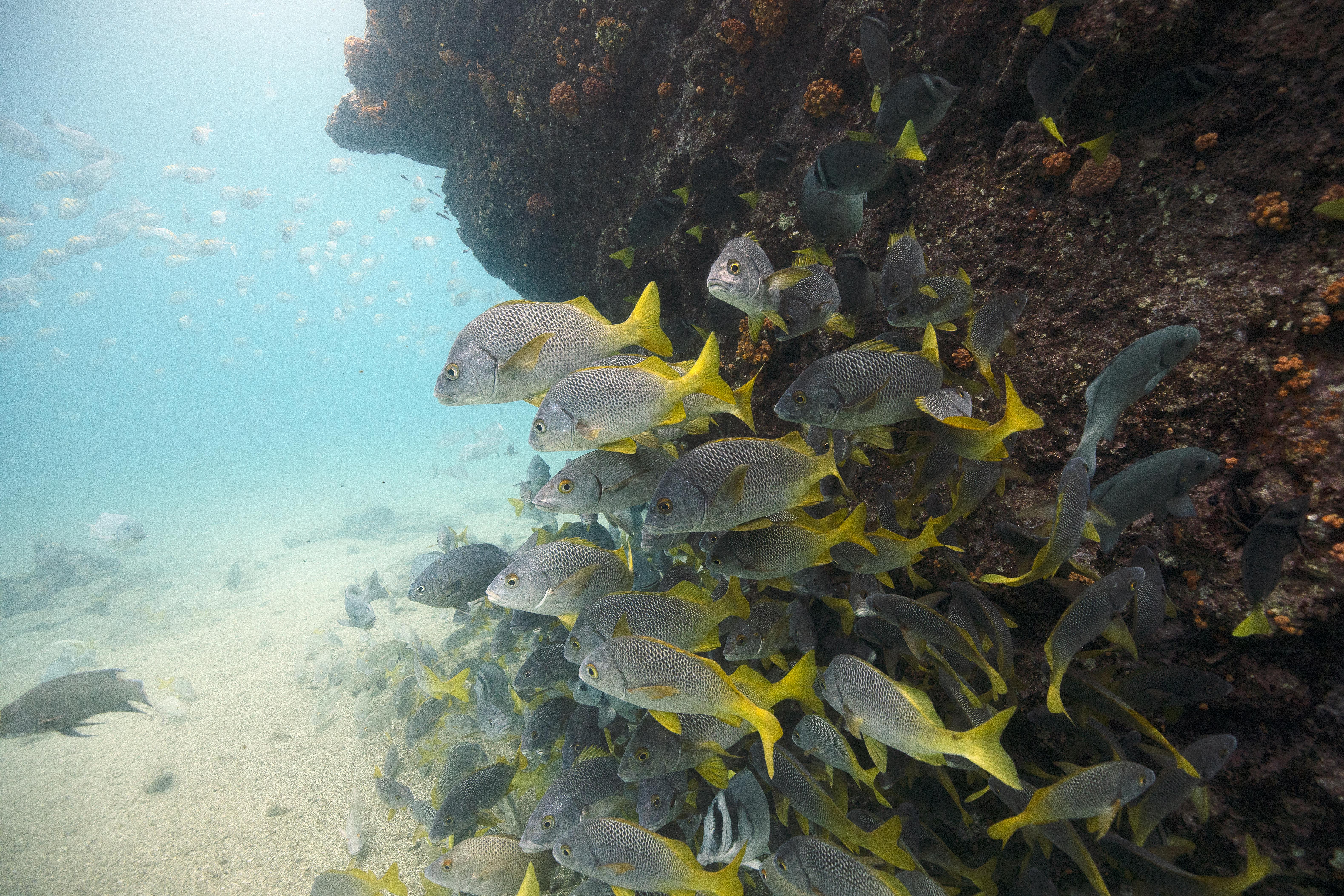Behind the Lens: Why Freediving in the Galápagos is Like Constant Meditation
Some of the most inspiring nature moments in the Galápagos happen freediving underneath the surface of its waters. Species here range from sea lions, sea turtles and dolphins to marine iguanas and penguins, to name a few. It’s not surprising that plunging into this unique underwater ecosystem with rocky reefs beholds experiences that Silversea expedition filmmaker David Padilla counts among his favorites when behind the lens.
“One of the most remarkable experiences I had underwater was swimming with a big pod of dolphins while they were feeding. That is something I had been chasing for a very long time and will never forget,” he says.
“It was at a beautiful red island named Rabida Island. Usually when snorkeling there you don’t get to see big animals or dolphins in that area, but it’s a great place to see fish and sea lions. So on that specific day it was great to encounter them.”
Smaller species, intriguing personalities
It’s not just the larger species which garner interest from visitors to the ocean here though, Padilla says, as the incredibly varied species of tropical fish have their own charm.
“What is interesting about all animals is that they all have different personalities which is great to discover, especially those underwater,” Padilla says.
“Even when the smaller fish are in groups they completely change their behavior compared to when they are alone. In big numbers they feel safe and understand that I am not preying on them.”
Free-diving in the Galapagos requires passion, skill and patience

As Padilla has spent more than five years and hundreds of hours in the ocean surrounding the Galápagos Islands, his technique has taken patience and skill, acquired over a long period of time through the practice of freediving. He now spends at least an hour in the water most days.
“Freediving has changed my life very significantly. When I started learning how to freedive, I wasn’t very good at all but I knew I couldn’t rush it, so I had to be patient. I became a more calm person. It’s like constant meditation,” he adds.
Freediving, in addition to snorkeling, is also a brilliant way to observe fish in the Galápagos that can be skittish. And for Padilla, filming marine life and bringing these interactions back to the surface is a gift.
“If you’re extremely patient and calm and wait for fish to approach you, all of them will come close to you. It’s that curiosity that animals have.”
Ready to learn how you can enjoy underwater exploration in the Galápagos? Find the right cruise for you here.
